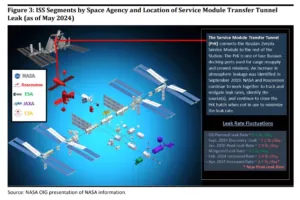
Revolutionary AI Tool Predicts Biological Age and Cancer Survival from Selfies!
2025-05-11
Author: Mei
Imagine if taking a simple selfie could reveal more than just your mood—it could transform your medical future! Enter FaceAge, a groundbreaking AI system that uses your selfies to accurately determine your biological age, potentially revolutionizing cancer treatment decisions.
The Eyeball Test Gets an AI Makeover
Traditionally, doctors start their assessments with what’s known as the "eyeball test," a quick judgment on whether a patient appears older or younger than their actual age. While useful, this method is subjective. FaceAge, a deep learning algorithm published in *The Lancet Digital Health*, takes this intuitive practice to the next level by providing a precise numerical age based on facial analysis.
Why Biological Age Matters
Trained on tens of thousands of images, FaceAge reveals that cancer patients generally appear biologically five years older than their healthy counterparts. This insight could lead doctors to tailor treatment plans—opting for aggressive therapies for those who can handle it, and gentler approaches for more vulnerable patients.
A Tale of Two Patients
Consider a lively 75-year-old whose biological age reads 65 compared to a frail 60-year-old with a biological age of 70. The first might be fit for aggressive radiation, while the latter could face serious risks. This biological age assessment could similarly guide decisions for heart surgeries, hip replacements, and even end-of-life care.
More Than Just a Selfie!
Research indicates that humans age at different rates influenced by genetics, lifestyle, and environmental factors. While expensive genetic tests can provide some insights, FaceAge simplifies the process using just a selfie, making it more accessible.
Unveiling the Data
The model was developed using 58,851 images of healthy adults over 60 and subsequently tested on 6,196 cancer patients just before they underwent radiotherapy. Results indicated that cancer patients had biological ages nearly five years higher than their chronological ones. Notably, higher FaceAge scores correlated with poorer survival outcomes.
AI vs. Human Judgment
FaceAge distinguishes itself from human assessments by placing less emphasis on superficial signs like graying hair, focusing instead on subtle changes in facial muscle tone. The AI not only offers predictions but enhances doctors’ accuracy when evaluating terminal cancer patients.
Tackling Bias and Ethical Concerns
While AI has faced criticism for bias, early assessments show FaceAge is not significantly skewed against any racial groups. Still, the developers aim to polish the model further and address factors like makeup or lighting that could mislead the algorithm.
The Future of FaceAge
One of the key challenges will be managing how patients respond to potentially alarming biological age feedback. As researchers work towards a public portal to validate the technology and its benefits, they must ensure that such tools are ethically employed—primarily for patient advantage.
The Road Ahead
With plans for commercial deployment after additional validations, FaceAge might soon bridge the gap between selfies and serious medical insights, sparking a new era in personalized health care.



 Brasil (PT)
Brasil (PT)
 Canada (EN)
Canada (EN)
 Chile (ES)
Chile (ES)
 Česko (CS)
Česko (CS)
 대한민국 (KO)
대한민국 (KO)
 España (ES)
España (ES)
 France (FR)
France (FR)
 Hong Kong (EN)
Hong Kong (EN)
 Italia (IT)
Italia (IT)
 日本 (JA)
日本 (JA)
 Magyarország (HU)
Magyarország (HU)
 Norge (NO)
Norge (NO)
 Polska (PL)
Polska (PL)
 Schweiz (DE)
Schweiz (DE)
 Singapore (EN)
Singapore (EN)
 Sverige (SV)
Sverige (SV)
 Suomi (FI)
Suomi (FI)
 Türkiye (TR)
Türkiye (TR)
 الإمارات العربية المتحدة (AR)
الإمارات العربية المتحدة (AR)